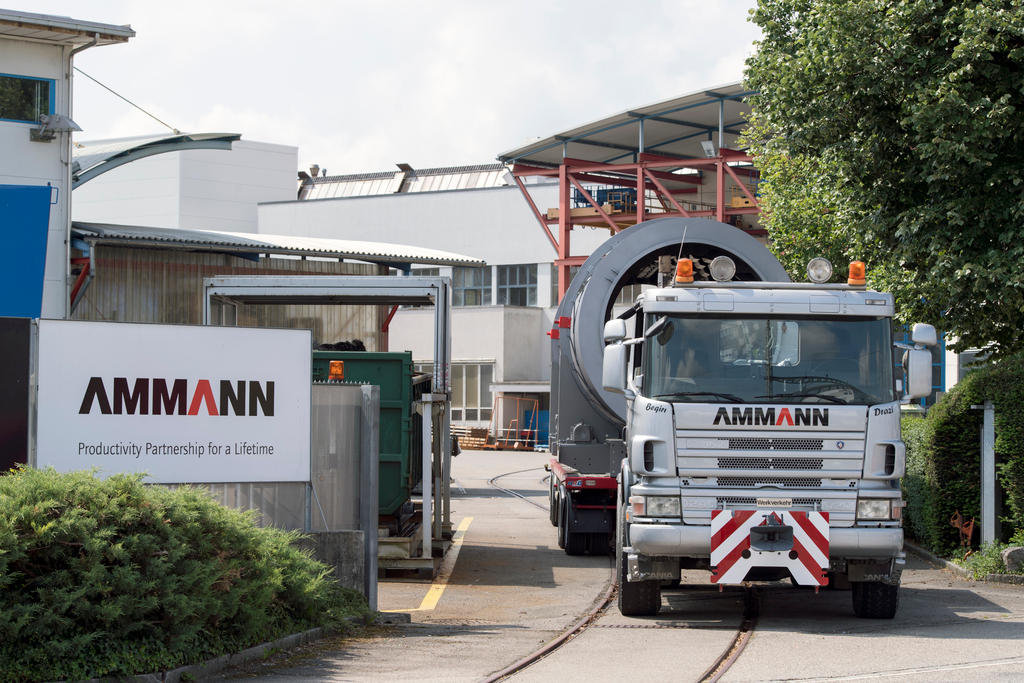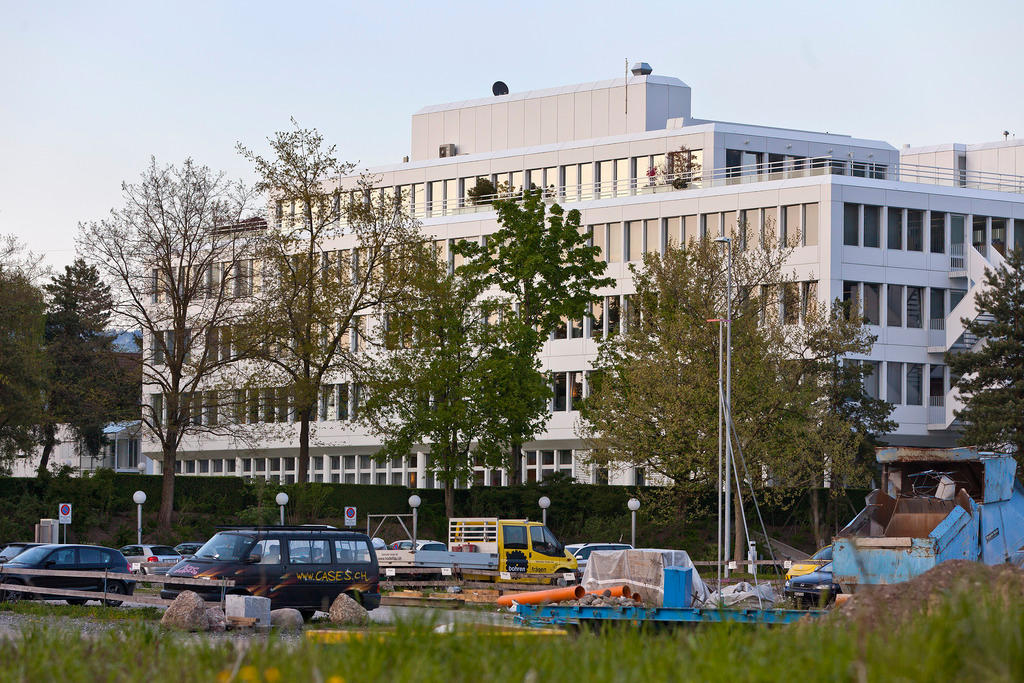Switzerland’s love affair with multinationals

Switzerland is home to some of the largest global companies. It has one of the highest concentrations of Fortune 500 companiesExternal link in the world – nearly two for every million people.
Low taxes, a skilled labour force, and economic stability have helped Switzerland attract and build some of the largest multinational companies. But, what is their economic value and what do they give back to society?
Multinationals or MNCs are only 5% of all companies…
The best available data indicates that there are roughly 25,500 foreign and Swiss multinationals in Switzerland, which is about 5% of the more than 580,000 registered companiesExternal link (in French).
Some 14,000 of these are Swiss-controlled companies with operations abroad according to estimates by the Swiss National Bank in cooperation with the Federal Office of Statistics. The remaining 11,500 are subsidiaries of foreign companies. The large majority of which are from Germany, the US, and France, and some 20% are administrative units or shell companies with no employees.
…but they create at least 25-30% of the jobs
Multinationals of all sizes are responsible for the direct employment of approximately 1.3 million people – or about one out of every four jobs in the country. However, most employees in many of the largest companies in Switzerland are based outside the country.
Of these, the Swiss National Bank External linkreports that Swiss multinationals directly employ about 850,000 people and foreign subsidiaries make up the remaining portion, employing about 470,000 peopleExternal link, or about 10% of employment in the market economy. The greater Zurich area benefits the most with 27% of the jobs in foreign subsidiaries. SwissholdingsExternal link, the association of multinationals in Switzerland, estimates that foreign multinationals created 168,000 new jobs in Switzerland from 2000 to 2010.
According to the Consortium of Multinational EnterprisesExternal link, which represents multinationals in the Geneva area, foreign and Swiss multinationals are responsible for 76,000 direct jobs in canton Geneva and 88,000 in neighbouring canton Vaud. Multinationals are responsible for two out of every three jobs created in the region in the last ten years.
Multinationals also have a significant multiplier effect on employment and entrepreneurship. As an example, for every job created in the pharmaceutical industry, an additional 3.2 full-time equivalent jobsExternal link are created in companies in other sectors. With 43,000 jobs in the pharmaceutical industry in Switzerland, this amounts to another 138,000 jobs.
…and, are major engines of the economy
Various sourcesExternal link indicate that multinationals generate about one third of the country’s gross domestic product (GDP) and tax revenue. In addition, MNCs’ employees pay a large portion of income tax.
Global companies are also key engines of local economies. GEM estimates that multinationals contribute more than 40% of the GDP of the cantons of Geneva and Vaud. The pharmaceutical industryExternal link reportedly accounts for almost 40% of the economy in Basel and 20% in the Lake Geneva area. A study by BAK Economics External linkfound that for every CHF1 of value added the pharmaceutical industry generates, another CHF0.70 accrues to other sectors through suppliers.
Switzerland’s position as one of the most innovative countries is also thanks in part to research and development (R&D) investments by global companies. Multinationals are responsible for 75% of investmentExternal link in R&D in the Lake Geneva area and a recent Ernst & Young study found that 11 of the world’s 500 largest R&D investors are Swiss multinationals with Roche, Novartis, and Nestlé in the top 100. In 2017, Swiss MNCs in the study invested a total of €23 billion (CHF26 billion) in R&D.
…while influencing the social and cultural landscape
Global companies also have a significant impact on the quality of life, reputation, and social and cultural fabric of Switzerland. In addition to their charitable giving to community organizations, multinationals have made important investments in local infrastructure, universities, and vocational training programmes.
But, the story isn’t always positive. While global companies have helped keep salaries among the highest in the world, this has also contributed to the high cost of living. An influx of skilled immigrants from European Union countries has kept up demand for accommodation, causing apartment prices in Zurich to rise 55% between 2007 and 2016, while the housing vacancy rateExternal link fell to under 1%.
A 2014 vote to restrict foreign workers and support of the Responsible Business Initiative are all signs that the public is becoming more aware of the risks that global companies could present to Switzerland’s brand and local job protection.
According to the International Labour OrganizationExternal link, a multinational enterprise or company owns or controls production, distribution, services, or other facilities outside the country in which they are based. It can be a public or private company, and typically comprises a parent company or group in one country with subsidiaries or branches in one or more other countries.
The Swiss Federal Office of StatisticsExternal link states that a company has control over another when it has majority shareholdings in another company (more than 50% of the voting rights) or when it has the power to determine company policies.
There are two categories of multinationals in Switzerland:
Foreign multinationals: Companies (typically, subsidiaries, branches, or research centres) that are owned or controlled by a company or group headquartered outside Switzerland. The Federal Office of StatisticsExternal link maintains a list of foreign subsidiaries in Switzerland. Examples include Google, Procter & Gamble, L’Oréal, BMW, and Caterpillar.
Swiss multinationals: Companies that control or own companies outside Switzerland but whose beneficial owner is Swiss. According to Swiss lawExternal link this means a Swiss person ultimately controls the legal entity in that they directly or indirectly, alone or in concert with third parties, hold at least 25% of the capital or voting rights in the legal entity or otherwise control it. This includes large companies like Glencore, Novartis, Roche, and Nestlé as well as smaller companies like Doodle.
As more companies establish headquarters in multiple regions or are acquired by foreign companies, it can be more difficult to classify companies. For example, while companies such as Syngenta, Swissport, and Sigg were established in Switzerland they are owned by Chinese parent companies.

In compliance with the JTI standards
More: SWI swissinfo.ch certified by the Journalism Trust Initiative






You can find an overview of ongoing debates with our journalists here. Please join us!
If you want to start a conversation about a topic raised in this article or want to report factual errors, email us at english@swissinfo.ch.